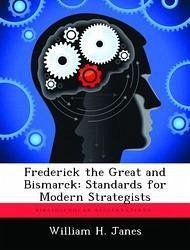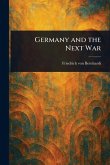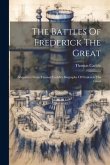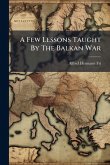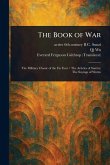Makers of modern strategy have an unprecedented challenge in our complex world. American strategists have been criticized for strategic failures since World War II. Congressional investigations have been initiated to examine the strategic education of senior military officers. The news media is replete with criticism of our strategy. The lingering question is how can a nation with our sophisticated educational system and highly intelligent leaders fail to develop a coherent, consistent, and productive strategy? This study examines two historical strategists, Frederick the Great and Otto von Bismarck, to determine if history provides any solutions for modern strategists. The study uses Michael Howard's elements of grand strategy. Five elements of grand strategy are discussed: operational, logistical, social, technological, and political. Frederick's and Bismarck's use of these elements is examined during the times they dominated policy making in Prussia. Their methods provide valuable insights about strategy development. This paper does not provide a solution to our modern problems with strategy. Rather, it focuses on two models. One model contains the elements of grand strategy. The second model provides criteria to evaluate the development and execution of strategy: determination, consistency of purpose, realism, creativity, vision, flexibility, and decisiveness. The conclusions verify Frederick's and Bismarck's strategic effectiveness. Frederick as King and Bismarck as Prime Minister provide numerous examples of successful implementation of grand strategy. Although our world is more complicated, there are definite applications for the modern strategist. The final section of the paper is a discussion of some modern strategic issues. We are not executing strategy effectively. However, if our leaders recognize the problem and develop a strategy which addresses the two models presented, our strategy will improve. If we do not, the lessons of Frederick and Bismarck wi This work has been selected by scholars as being culturally important, and is part of the knowledge base of civilization as we know it. This work was reproduced from the original artifact, and remains as true to the original work as possible. Therefore, you will see the original copyright references, library stamps (as most of these works have been housed in our most important libraries around the world), and other notations in the work. This work is in the public domain in the United States of America, and possibly other nations. Within the United States, you may freely copy and distribute this work, as no entity (individual or corporate) has a copyright on the body of the work. As a reproduction of a historical artifact, this work may contain missing or blurred pages, poor pictures, errant marks, etc. Scholars believe, and we concur, that this work is important enough to be preserved, reproduced, and made generally available to the public. We appreciate your support of the preservation process, and thank you for being an important part of keeping this knowledge alive and relevant.
Bitte wählen Sie Ihr Anliegen aus.
Rechnungen
Retourenschein anfordern
Bestellstatus
Storno

